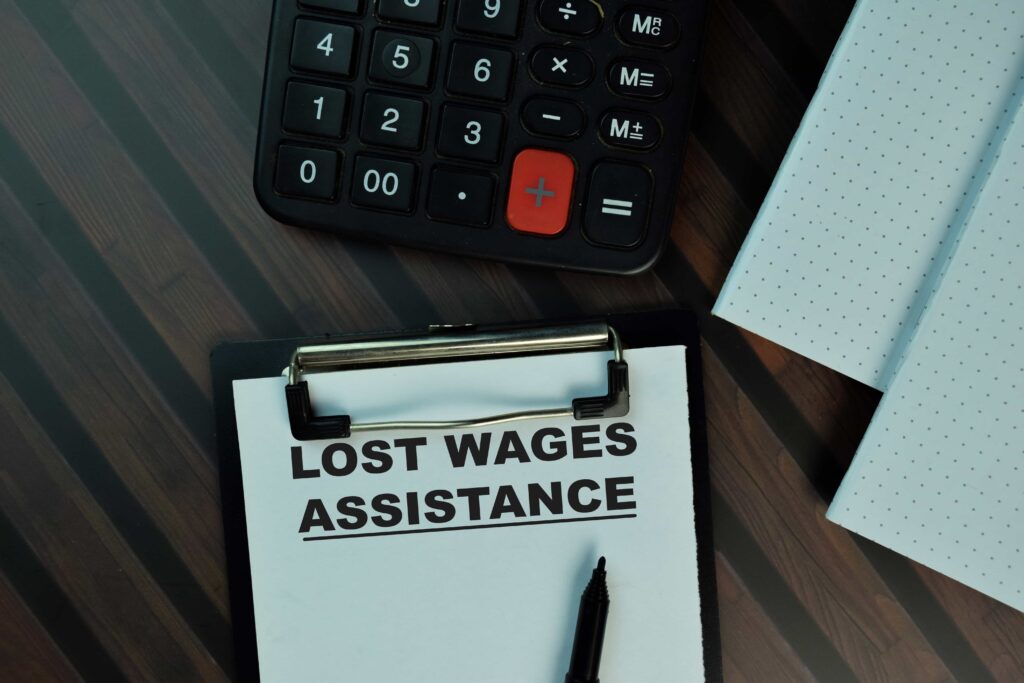Lost earnings are the wages you miss out on because your injury prevents you from working. After a car accident, this can happen in several ways. The most common reason is that you physically cannot do your job, whether due to pain and suffering, restricted movement, or a condition that makes it unsafe to perform your duties. Sometimes, even a temporary injury can prevent you from returning to work for weeks or months.
Time away from work doesn’t always result from the injury itself. You may also lose income because of time spent attending medical appointments. These absences can add up to a significant loss in earnings. In more serious cases, an injury may limit your ability to work long-term or permanently. Fortunately, you can recover lost income with the help of a phoenix car accident lawyer, so you can maintain financial stability while you're out of work.
Key Takeaways
- Lost income covers wages, overtime, bonuses, benefits, and even self-employment earnings.
- Future lost wages may apply if injuries reduce your ability to work long-term.
- Strong documentation (employer letters, pay stubs, medical records) is essential.
- Arizona allows 2 years to file a lost income claim.
- An experienced car accident lawyer can maximize your compensation.
How Do Lost Wages Happen?

Lost income can result from many situations following a car accident injury. When accident injuries keep you from doing your job as usual, whether for a few days, weeks, or even longer, you may lose income you may have otherwise earned.
For example, you might miss work because:
- Your injuries physically prevent you from performing your job duties.
- You must attend medical treatments, such as doctor appointments, follow-up evaluations, physical therapy, or rehabilitation sessions.
- You are recovering from surgery, medical procedures, or other accident-related care at home.
- Your injuries are so severe that they limit your ability to return to work for an extended period or permanently.
Whenever you miss work for these reasons, you count that as lost income and can include it in your compensation claim after an accident.
Types of Lost income That I Can Recover
There are several categories of lost income that you can recover after a car accident, depending on the nature and severity of your injuries. These losses are not limited to your hourly or salaried pay; they can also include other financial harm tied to your inability to work. These include the following:
- Missed Paychecks or Salary: The most straightforward type of lost earnings is the income you may have earned when you can not work. This includes hourly wages, salary, and commissions you might have received had you not suffered an injury.
- Lost Overtime and Bonuses: Include those in your claim if you regularly worked overtime or reasonably expected to earn bonuses. Documentation such as past pay stubs or employer records may be needed to prove this loss.
- Sick Leave and Vacation Time Used: If you had to use up your paid time off, such as sick days or vacation time, while recovering from your injury, you can seek reimbursement for that as well. Although these days you may have technically paid your income during your absence, you may still incur financial losses because you no longer have those benefits available.
- Retirement Fund Contributions: Some employers contribute some of your earnings to retirement accounts such as a 401(k). If those contributions stop or decrease because you’re out of work, factor that lost value into your claim.
- Loss of Self-Employment Income: If you're self-employed or a contractor, you may be entitled to recover lost business income. You typically prove this with tax returns, invoices, or documented bookings canceled or missed because of the injury.
- Reduced Hours or Modified Duties: Sometimes, a person can return to work only part-time or under restricted conditions that reduce their income. The difference between what they may have earned and received can be calculated and reimbursed as an income loss.
- Lost Perks and Benefits: Job-related perks such as vehicle allowances, stock options, or subsidized child care may also qualify for compensation. If your benefits depended on active employment and you lost access to them during recovery, include them in your economic damages.
These losses are compensable because they represent direct, measurable impacts on your financial stability. Your car accident lawyer prepares accurate documentation to secure your full reimbursement. Thorough records help prevent undervaluation by insurance adjusters and strengthen your case for every dollar you owe.
However, the amount you can receive as compensation for loss of income after a car accident depends on several factors unique to your situation. For example, the longer your recovery period and the more work days you miss, the higher your lost earnings claim will likely be. Additionally,Suppose your injuries permanently diminish your capacity to work or force you to take a lower-paying job. In that case, you may receive compensation you can claim in an injury accident for the estimated future income you will lose over time.
Because each case is different, it’s hard to predict an exact dollar amount without reviewing your circumstances. A car accident lawyer can evaluate your losses and help estimate the fair value of your lost earnings claim to ensure you pursue fair compensation. This personalized assessment considers your specific job, income history, prospects, and the extent of your injuries to build a more accurate and persuasive claim.
How Do I Prove Lost Wages?

To recover compensation for lost earnings following a car accident, you need clear and detailed documentation showing how your injury directly affected your ability to work. This includes proof that your injuries from the car crash kept you from working. Without solid evidence, insurers may challenge your claim or undervalue your losses. Here’s what you should gather to strengthen your case:
Employer Verification
A written letter from your employer is one of the most effective ways to confirm the extent of your income loss. This document should outline your job title, pay rate, scheduled hours, and the dates you missed due to the accident. It may also include confirmation of any missed overtime opportunities, bonuses, or promotions that will have increased your income during your recovery period.
Pay Stubs and Tax Records
Recent pay stubs help establish your normal earnings and provide a baseline for calculating your missed income. Tax returns, bank deposits, and client invoices are essential to prove consistent income levels if you're self-employed or working on a contract. These financial records show the scope of your economic loss and help counter claims that your earnings were irregular or speculative.
Medical Records
Medical documentation serves as a foundation for proving that the accident-related injuries directly caused your inability to work. These records should clearly show your diagnosis, prescribed treatment, and any limitations that will prevent you from safely performing your job. Without this medical connection, insurers may argue that your time off work was unrelated to the accident.
Doctor’s Note or Disability Certification
A formal letter or disability form from your treating physician reinforces the timeline and necessity of your work absence. It should state that your doctor advised you not to work, describe your limitations, and estimate your recovery time. This evidence is especially important when insurers question whether your missed time was medically justified. Including this documentation in your claim creates a clear medical link between your injuries and your time away from work, making it harder for insurers to dispute your losses.
Calendar of Missed Work and Appointments
Maintaining a personal log of all the days you missed due to injury, medical appointments, or therapy sessions helps demonstrate the ongoing impact on your employment. Each entry should include the date, reason for absence, and missed time, whether a full day or partial shift. This calendar supplements employer and medical records and strengthens your credibility if there are discrepancies in other documentation.
Supporting Professional Opinions
Insurers may require analysis from an economist, vocationalist, or rehabilitation professional for long-term or future income loss claims. These professionals can estimate the financial impact of your reduced earning capacity based on your education, job history, and medical limitations. Their reports objectively support claims involving permanent injuries or diminished career prospects.
Can I Recover Future Lost Wages?

In some cases, car accident injuries are so serious that they impact your ability to work long after the initial recovery period or even permanently. When this happens, you can recover future lost earnings, also known as loss of earning capacity.
Future lost wages compensate you for income lost because your injuries keep you from returning to your previous job, reduce your working hours, or force you to accept a lower-paying position. This type of claim often applies when:
- You are permanently disabled or restricted from performing some job tasks.
- Your injuries require a career change to a less physically demanding or lower-paying field.
- You can only return to part-time work instead of your full-time position.
Medical professionals, vocational specialists, and economists typically provide professional analysis to calculate future lost earnings and estimate how an injury will affect earning potential. This approach helps thoroughly evaluate how injuries may affect future earnings and professional trajectory. These professionals assess your physical limitations, career prospects, and labor market conditions to create a detailed, evidence-based projection of lost income. Their testimony strengthens your claim and supports a more accurate settlement or court award.
When Do I File a Lost Income Claim?
You should file a lost income claim as soon as you have documentation showing that your injury from the car accident has caused a measurable loss of income. This type of claim is typically included in your broader personal injury claim, whether filed with the at-fault driver’s insurance company or through underinsured or uninsured motorist coverage. You must act early to strengthen your claim and help preserve necessary evidence while it’s still fresh and accessible.
It’s unnecessary to wait until you fully recover before beginning your claim. When your doctor confirms that your injuries bar you from working and your employer can verify missed time or reduced duties, you can start assembling the documentation to submit. Filing promptly ensures you don’t give the insurance company an excuse to question the legitimacy or scope of your financial losses. which is essential when fighting the insurance company after a car accident.
In Arizona, the claims for lost earnings are limited to two years from the accident date. This deadline is strict in that if you don't initiate within this two-year window, you will likely forfeit your right to seek recovery related to your injury. For this reason, it’s important to document your losses carefully and act within the legal timeframe to preserve your claim. Your lawyer ensures your claim falls within the legal timelines to ensure you don't miss out on compensation.
Why Work With a Car Accident Attorney?

Recovering lost earnings after a car accident may seem straightforward, but it often requires more than submitting a pay stub or doctor’s note. Insurance carriers may dispute your claimed amount, challenge whether your injury prevented you from working, or argue that something else caused your income loss. A lawyer builds a strong, evidence-backed case to prevent disputes from delaying or reducing your compensation.
A car accident attorney knows what kind of documentation insurers and courts expect to see. They can coordinate with your doctor to obtain detailed medical statements, work with your employer to draft income verification letters, and bring in economic or vocationalists if your claim involves long-term or future income loss. This level of preparation can make a measurable difference in whether your claim is paid promptly and in full.
Additionally, Arizona’s personal injury laws, including its two-year statute of limitations, can affect your legal position to recover damages. A personal injury lawyer will file your claim on time, follow all legal requirements, and include every compensable loss—covering earnings, benefits, and future earning potential. They will negotiate with the insurer to allow you to focus on healing while safeguarding your financial interests.
Pursue Full Compensation for Your Lost Income
If a car accident has taken you off the job and cut your income, you should receive full compensation for every missed paycheck, lost benefit, and setback to your long-term earning potential. A car accident attorney can gather the right evidence, assemble documentation, prove your losses, and push back against tactics to undervalue your claim.
Consult with your lawyers immediately to guide you toward recovering the time and income you’ve lost—and to make sure no deadlines or critical details fall through the cracks during your claim.